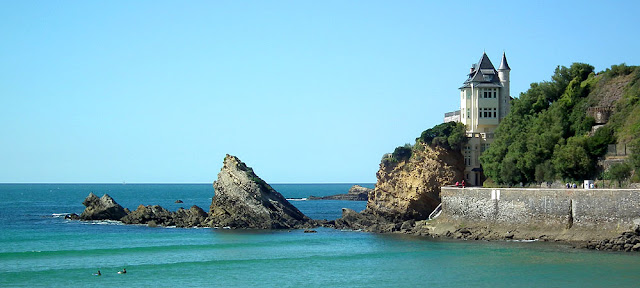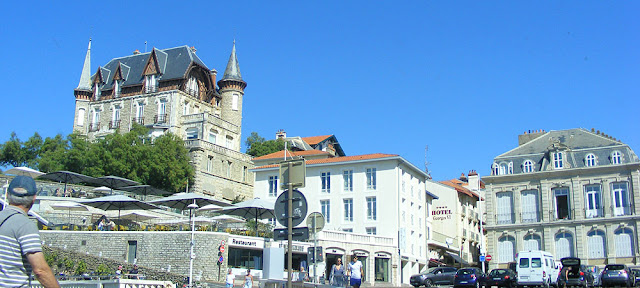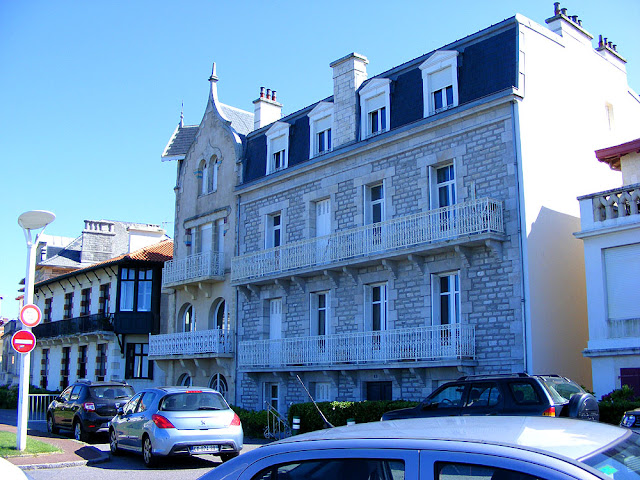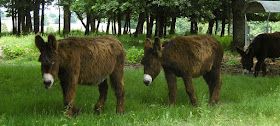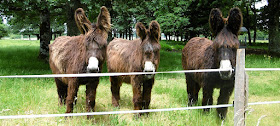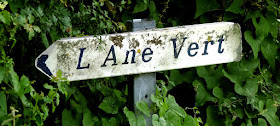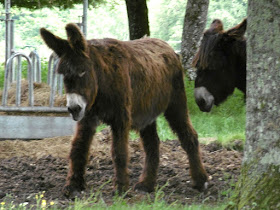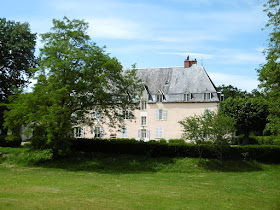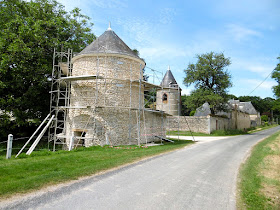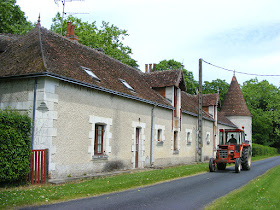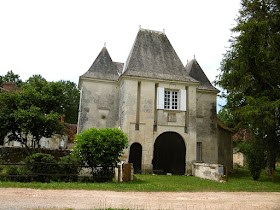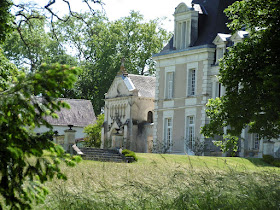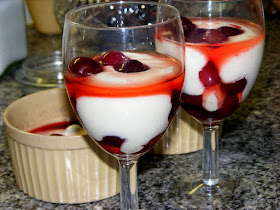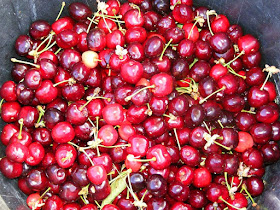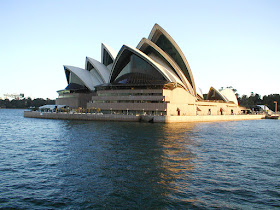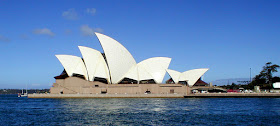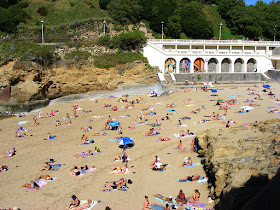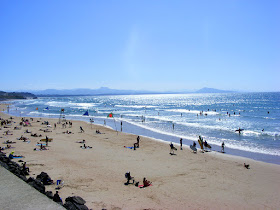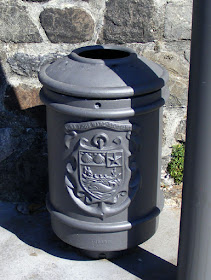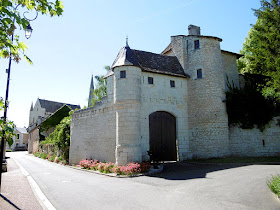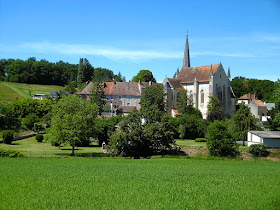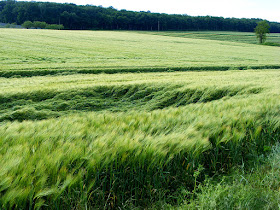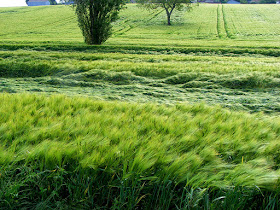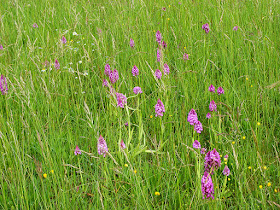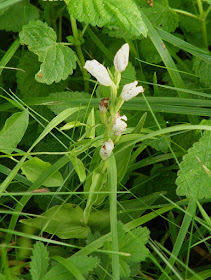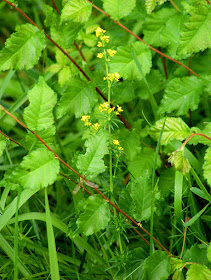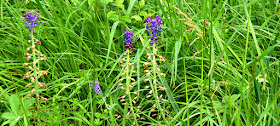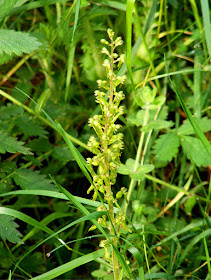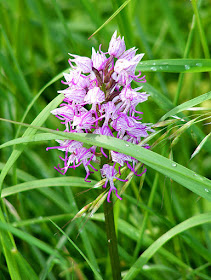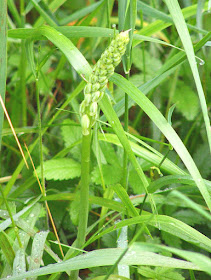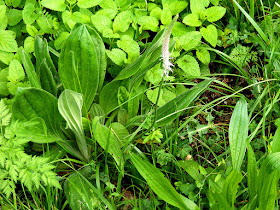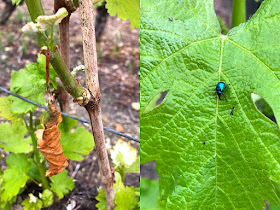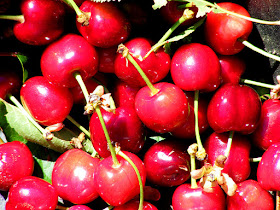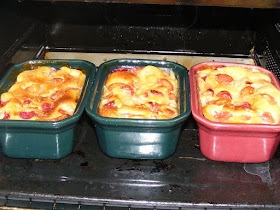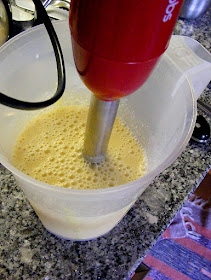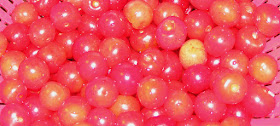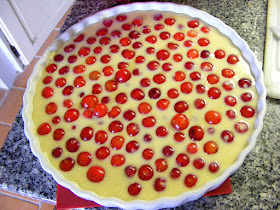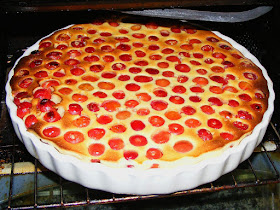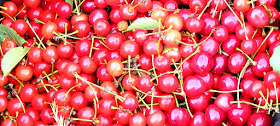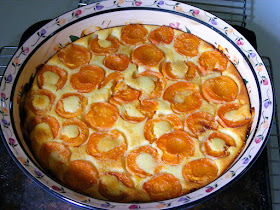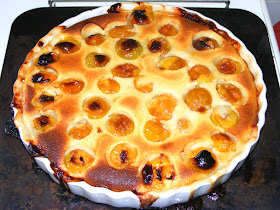Once upon a time France was split up into Provinces, and even longer ago, where we live was the border between French held territory and English held territory. We live in what was
the Touraine, but very close to the old Berry on one side and Poitou on
the other. But then the administrative boundaries changed, and the Touraine became Indre et Loire, Berry became Indre. Except it wasn't quite as simple as that. Some communities from Touraine found themselves lumped in with the old Berry and were now in Indre. So we have a set of chateaux, most of them originally defensive sites dating back to the Hundred Year War, now administratively in Berry/Indre but culturally linked to the Touraine/Indre et Loire. So the area has come to be referred to as the Touraine Berrichonne.
The gatehouse to the Chateau de la Bernaudière.
The roof of the chateau itself is only just visible if you stand further down the road.
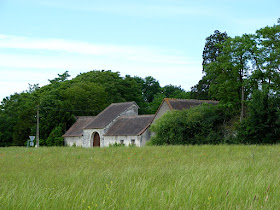
The immediate area we live in is one that few people have heard of and it gets very few visitors, although it is on the edge of the area known to foreign tourists as the Loire Valley. Despite the lack of tourist pull it does have a rich history of human activity, as well as its rich natural heritage and last Thursday, which was a beautiful day, we went for a little touristic drive. It was carefully planned by Simon who had looked on the map and identified a number of sites that he wanted to photograph. We had a lovely time, and were amused that we were not the only locals with the same idea. We kept running into the same people, clearly doing the same route as us, and clearly history enthusiasts too, like us attracted the somewhat obscure nature of the place. Luckily this didn't put a dampener on our outing. Everyone was friendly, keeping their distance politely. We hadn't expected to interact with anyone at all in such obscure locations, so had come out without masks or hand sanitizer (although we had wipes in the car) and I was a bit embarrassed to be caught out like that. It was fine though, with plenty of room to manoeuvre and avoid people. Only one of the other party put on a mask, and then only when we met up for the third time.
The main residential block of the Chateau des Effes, built in the 15th century,
but owned since the 18th century by the Le Souffleur family.
We were never more than 12 kilometres from home and we set out through the Forest of Preuilly. Once out on the other side it is clear to the trained eye that we are in a different landscape. The soil is different, the fields are different, with more grazing, more hedges. The whole landscape seems secretive and stuck in a timewarp from centuries ago. The chateaux we had come to photograph are down a network of narrow roads, which do sharp right angled bends when they come to the corner of a field - very medieval. These chateaux are privately owned, not open to the public, and form the hub of large farms, just as they would have done when they were built. Around them are enormous barns, often a private chapel and usually a defendable gatehouse and the remains of a moat. You just get glimpses of the chateaux themselves from the road.
Towers at the entrance to the Chateau des Effes. Beyond are the stables,
which apparently have rather curiously shaped stalls.
These are not royal chateaux, but fortified and working farms, owing allegiance to the Barony of Preuilly. It's where the money was really made in the old days, and it shows in the size of the farm complexes. They are not flashy buildings for the most part though. Discreet, provincial and solid, like their owners.
Outbuilding at the Chateau de l'Effougeard.
The Chateau de l'Effougeard, near Obterre, once formed part of the chatellanie of Les Effes, but the original building was replaced in the 19th century. In 1960 the Belgian industrialist Léon Schrurs, bought the estate and whilst out on a walk in the area came upon some wild hops. He decided to try cultivating the plant and brought in the hop master Roger Top to run the business. For 25 years they grew hops on 20 hectares, becoming the biggest private grower in Europe and employing 30 seasonal workers from April to September. The hops were sold to Stella Artois.
The business ceased to be profitable in the 1980s, when the market was flooded with hops from Eastern Europe. Roger Top returned to his home in Belgium and became deputy mayor of his village. As he had been friendly with the mayor of Obterre at the time, the two villages were twinned and remain so today, and to this day Obterre holds an annual hop festival at the end of August.
Chateau de l'Effougeard.
The gatehouse of the Manoir de la Girouardière.
Surrounded by the remains of a moat the manor of La Girouardière was almost certainly built in the 16th century. The gatehouse has lodgings above both a main drawbridge entrance and a foot drawbridge. Most of the buildings within the courtyard it is protecting date from the 18th century, but some are older and their architectural elements are clear testimony to this compound's defensive function in the past. There was a private chapel, but it has disappeared since the 18th century. The same family owned this manor and the Chateau de l'Effougeard in the 18th century, and they are only a few metres from one another. The last member of this family who inherited the manor in 1818 became a nun and sold the property to the family who currently own it.
Chateau des Michauds, with its private chapel.
Built in a neo-Gothic style, the Chateau des Michauds is still occupied by the same family who constructed it in the 1860s. Although a rather eclectic collection of architectural features, the whole comes together to form an attractive and grand complex. Apparently the interior decor is unusual and interesting, including a Turkish Room, some noteworthy stained glass and medieval inspired wall paintings. The chapel is a reconstruction of a 16th century church, itself a remaking of an earlier Romanesque structure on the site.
************************************************
For details of our private guided tours of chateaux, gardens, wineries, markets and more please visit the
Loire Valley Time Travel website. We would be delighted to design a tour for you.
We are also on
Instagram, so check us out to see a regularly updated selection of our very best photos.


